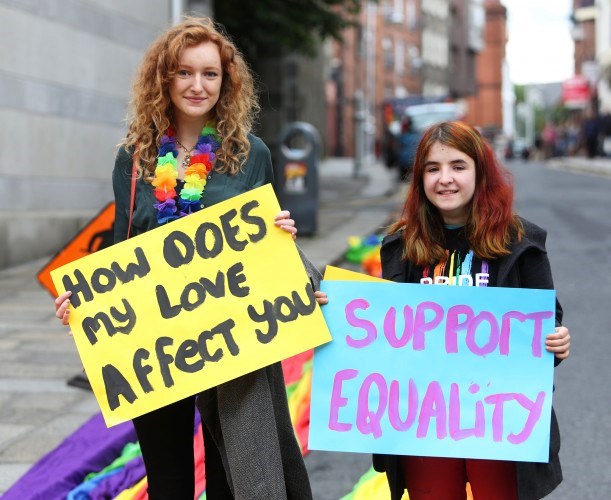“Marriage may be contracted in accordance with law by two persons without distinction as to their sex.”
On the 22nd of March 2015, the Irish people voted to change the wording of the constitution, so that this phrase replaced the old one, which implied that a marriage could only be between a man and a woman. This was a huge and exciting victory for Ireland and its LGBT+ citizens.
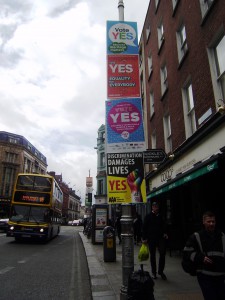
But this referendum was not won overnight. The holding of the referendum was the result of years and years of work by irish LGBT+ activists, many of whom worked to get homosexuality decriminalised in Ireland in the 70s. In the months leading up to the vote, the streets of Dublin were plastered with posters from both sides of the camaign, people were canvasing door to door, and businesses, schools, even the police, were all publicly showing support for marriage equality. Walking around Dublin, as a young gay person, the enthusiasm and passion of the “yes” campaign (those in favour of marriage equality) was to be seen everywhere, and it was incredible to see the shop windows, traffic lights, and postboxes all proudly bearing the phrase “Yes Equality”.
However, it was hard to overlook the “No” posters, which promoted the “traditional family” at the expense of single parent families and families with same sex parents. The determination of both sides led to a long and engaging nationwide debate. The entire country was having a discussion about marriage and families, and most of all, what it was like to be a member of the LGBT+ community in Ireland. This discussion quickly turned personal. People began to “come out”, including public figures like politician Leo Varadkar and journalist Ursula Halligan, in order to share their stories and encourage people to vote yes. It had become very emotional, and for the first time, the country was listening to a new narrative: that of LGBT+ people.
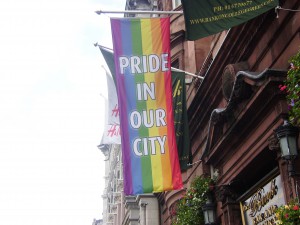
The campaign was also very different from previous referendums in its amount of youth involvement. It was very clear from the get go that the result was hugely dependent on the youth turnout in voting stations, as young people tend to be the most supportive of LGBT+ issues. A huge part of the Yes Campaign was devoted to highlighting the importance of registering to vote and voting. People were so moved by this issue and this campaign that many Irish emigrants living abroad flew home to vote yes, which resulted in the phenomenal hashtag #hometovote, where people blogged their journeys from other countries, continents to take part in the historic day. In a country where voting had become much less popular with young people as well as everyone else, this particular issue invigorated the population, resulting in a historically high voter turnout. Almost 66,000 people registered to vote for the first time, with a total of 1,935,907 people voting in total.
On the day of the results, thousands of people gathered in Dublin Castle, where the votes were being counted for the Dublin constituencies. People were draped in rainbow flags with brightly painted faces, and the atmosphere was electric. When the results officially came true, I heard a weak stream of the national anthem from the crowd. Little by little, we all joined in. For many of us, it was a moment of not just LGBT+ pride, but Irish pride. Irish Pride in a way we had never felt it before.
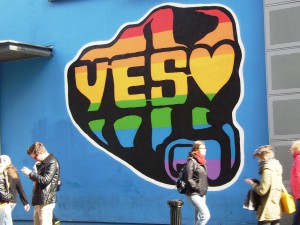
Many people do not take the issue of Marriage Equality seriously, because there are so many more serious obstacles facing the LGBT+ community, both in Europe and globally. But if you are seen as equal in the eyes of the law, you are ultimately more protected by your government. When I grow up, if I do have a family, I won’t have to worry about being treated differently or having less rights as a mother and a wife as anyone else in the country. It also showed a huge support for LGBT+ people. It told us that Ireland has changed, and that we do not have to hide anymore.
This is a huge and important change for our country, and I could not be more proud.
About the author:
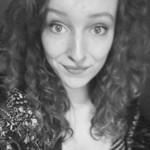
Feargha Clear Keena (17) participated in the “My Europe” Workshop in Dublin in 2014. She goes to school at Mount Temple Comprehensive and enjoys playing music, writing songs, and learning foreign languages.
For me, Europe is…
…an amazing collection of art and culture and history that I’m lucky enough to be able to witness and be a part of.

